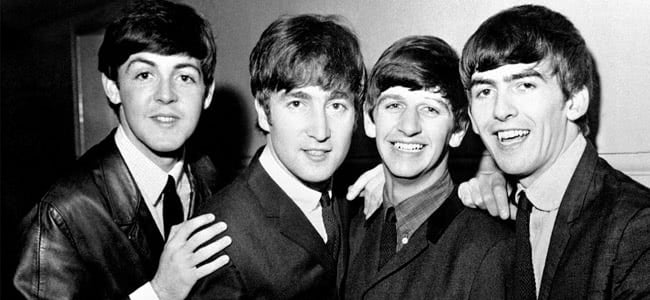As previously reported, Sony Music recently took measures in Europe to extend the copyright of a collection of 86 early Bob Dylan recordings through issuing a limited edition boxset (which became an instant collector’s item) in selected stores in Germany, France, Sweden, and Britain just after Christmas.
The rushed release of the new Dylan collection came in response to new provisions in European copyright law, which was recently extended from 50 years to 70 years, but the changes are still being implemented into the laws of each member state across the European Union, a process set to be complete by November this year. For everything recorded before 1963 however, they technically fall within the public domain in Europe.
Sony’s Dylan collection was to avoid that legal pothole, but another classic hasn’t been so lucky with news that The Beatles’ debut single ‘Love Me Do’ has become public property, at least in Europe. As CMU reports, two independent labels have reissued the Fab Four’s single after it entered public domain on December 31st, 2012 – the year that marked the song’s 50th anniversary.
Digital Remasterings took advantage of the opportunity, including ‘Love Me Do’ in a compilation of early Beatles recordings and rarities, and a little-known company called Pristine Classical, who specialise in remastering and releasing out-of-copyright classical music.
The small European label bended its usual methods of reissuing old symphonic recordings to offer a remastered version of the Beatles single, including classic b-side ‘PS I Love You’, reportedly as a form of protest against the trouble the extended copyright will cause in its operations, according to Rolling Stone. “Two independent labels have reissued the Fab Four’s single after it entered public domain on December 31st, 2012 – the year that marked the song’s 50th anniversary.”
The copyright for the song however, does not affect the cash flow to Sir Paul McCartney, because they are subject to a different condition – namely the lifespan of its creators (70 years after McCartney’s death for instance); but the licensing fees usually provided to publishers has lapsed, meaning that anyone can distribute the original recordings without permission from their former owners – the record labels.
Having a major British act like The Beatles affected by the changes is a major turning point, and the UK’s Intellectual Property Office are open to consultation until March 4th this year as the copyright laws in the United Kingdom are amended, but there is no chance of ‘retroactively’ changing the laws.
Love The Beatles?
Get the latest The Beatles news, features, updates and giveaways straight to your inbox Learn more
There is still the ‘use it or lose it’ clause, that means labels must ensure recordings that are 50 years old or over are available for purchase, otherwise the featured artist will be able to claim control of the copyright – as is the instance with Sony and The 50th Anniversary Collection: The Copyright Extension Collection, Vol. 1.
It’s an interesting new paramater to the continued discussion of music ownership, artistic royalties, and the access, value, and distribution of music; and will likely continue to be as other major recording artists of the 50s and 60s – from Miles Davis and Frank Sinatra to the Rolling Stones – also run the risk of falling into EU public domain.



































